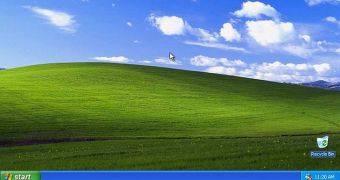Microsoft is still pushing organizations and government bodies across the world to switch from Windows XP to Windows 8.1, and today the company has scored another important win.
The New Zealand government, which has previously agreed to move from XP to 8.1, has completed the upgrade for 2,740 computers belonging to the Ministry for Primary Industries to Microsoft's latest operating system.
Of course, both Microsoft and local authorities were pleased with the outcome of this new deal, so officials stepped in front of the media to emphasize that such a transition would allow future investments in new tools, as more modern technologies are supported by this new operating system.
“We’ve been planning the move from XP for more than 18 months. After discussions with Microsoft, we delayed the rollout to ensure we’d roll out the latest version, and reduce the risk of running multiple upgrades,” Acting Deputy Director-General Corporate Services, Tracy Voice, said.
“We decided not to purchase the extended support for XP offered by Microsoft from 8th April, as we were on track to complete the upgrade by 20 June and had completed a full risk assessment, which rated the security risk as low.”
Government bodies aren't the only ones that should switch from Windows XP to a newer platform very soon and Microsoft is urging everyone, including end users, to do the same as soon as possible.
Windows XP no longer receives updates since April 8, so computers still running it could easily become vulnerable to attacks if cybercriminals discover an unpatched vulnerability in the operating system.
The software giant warns that although Windows XP continues, it lacks the necessary technologies to keep you protected, so switching to another platform is pretty much the only option.
“While it's true that you can keep using your PC with Windows XP after support ends, we don’t recommend it. For starters, it’ll become five times more vulnerable to security risks and viruses, which means you could get hacked and have your personal information stolen,” the company said.
At this point, Windows XP is still installed on 25 percent of the desktop computers worldwide, which is living proof that not everyone is ready to move to a different operating system.
However, figures are expected to drop significantly in the coming months, as more organizations and governments across the world complete the transition to either Windows 7 or Windows 8, both of which are deemed more secure than XP.

 14 DAY TRIAL //
14 DAY TRIAL //